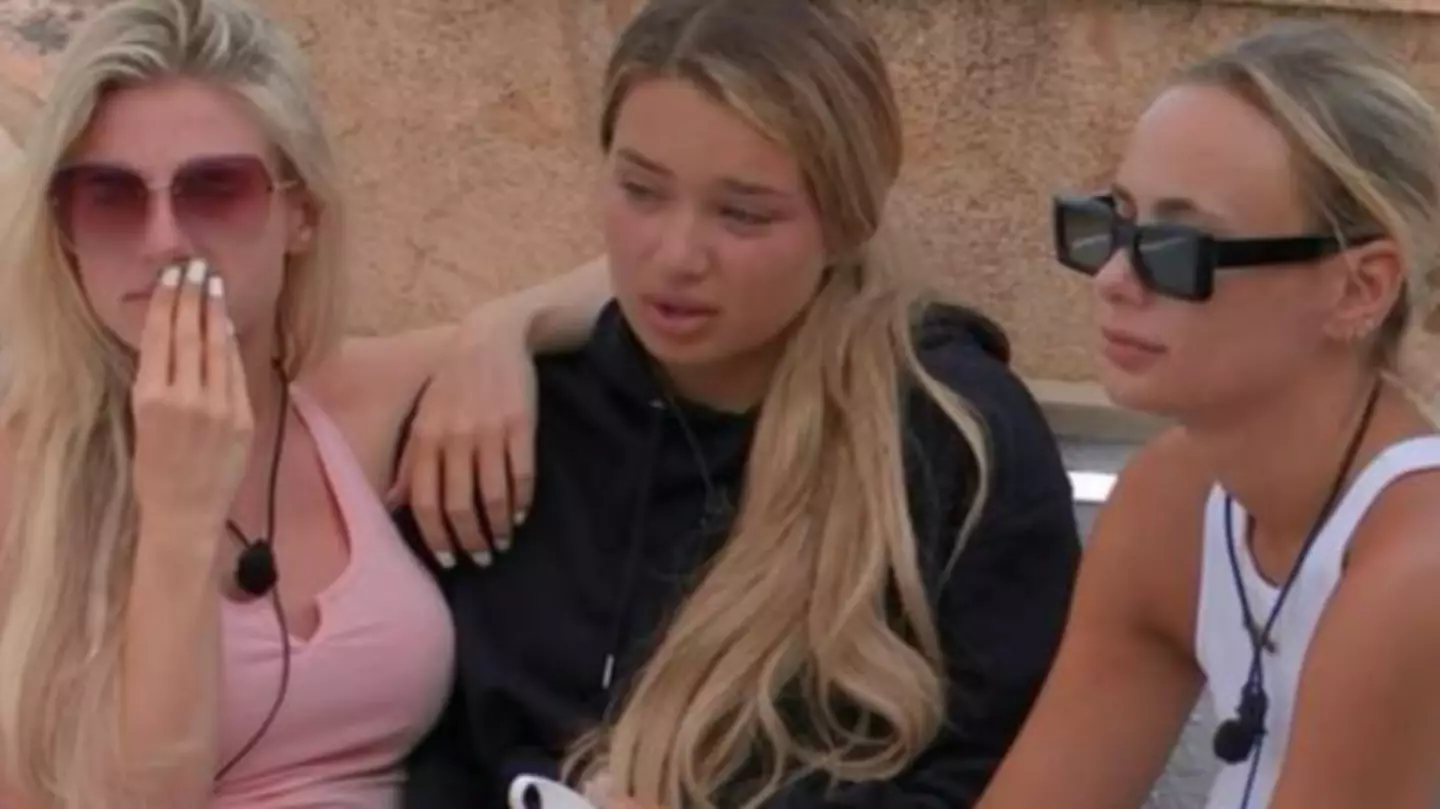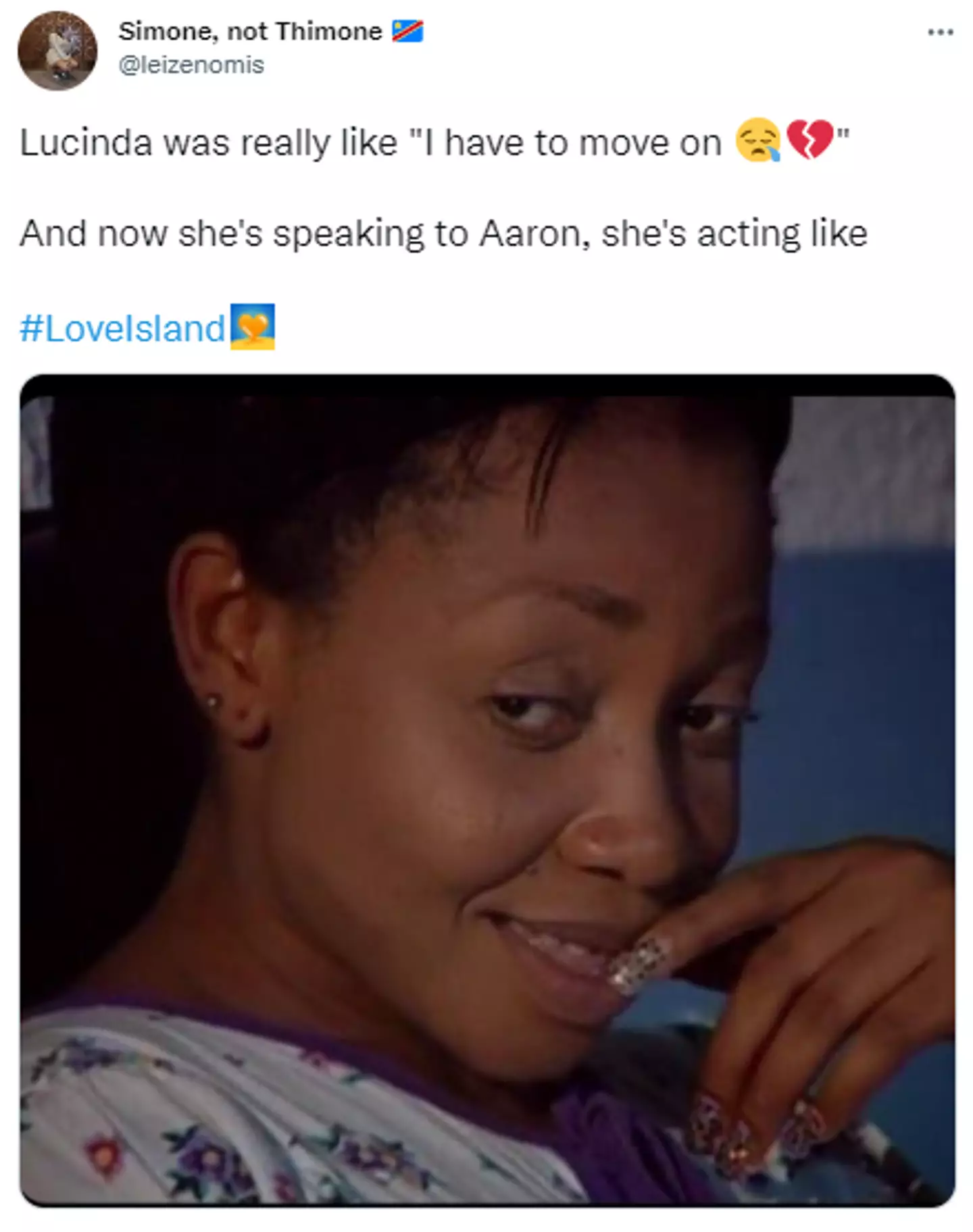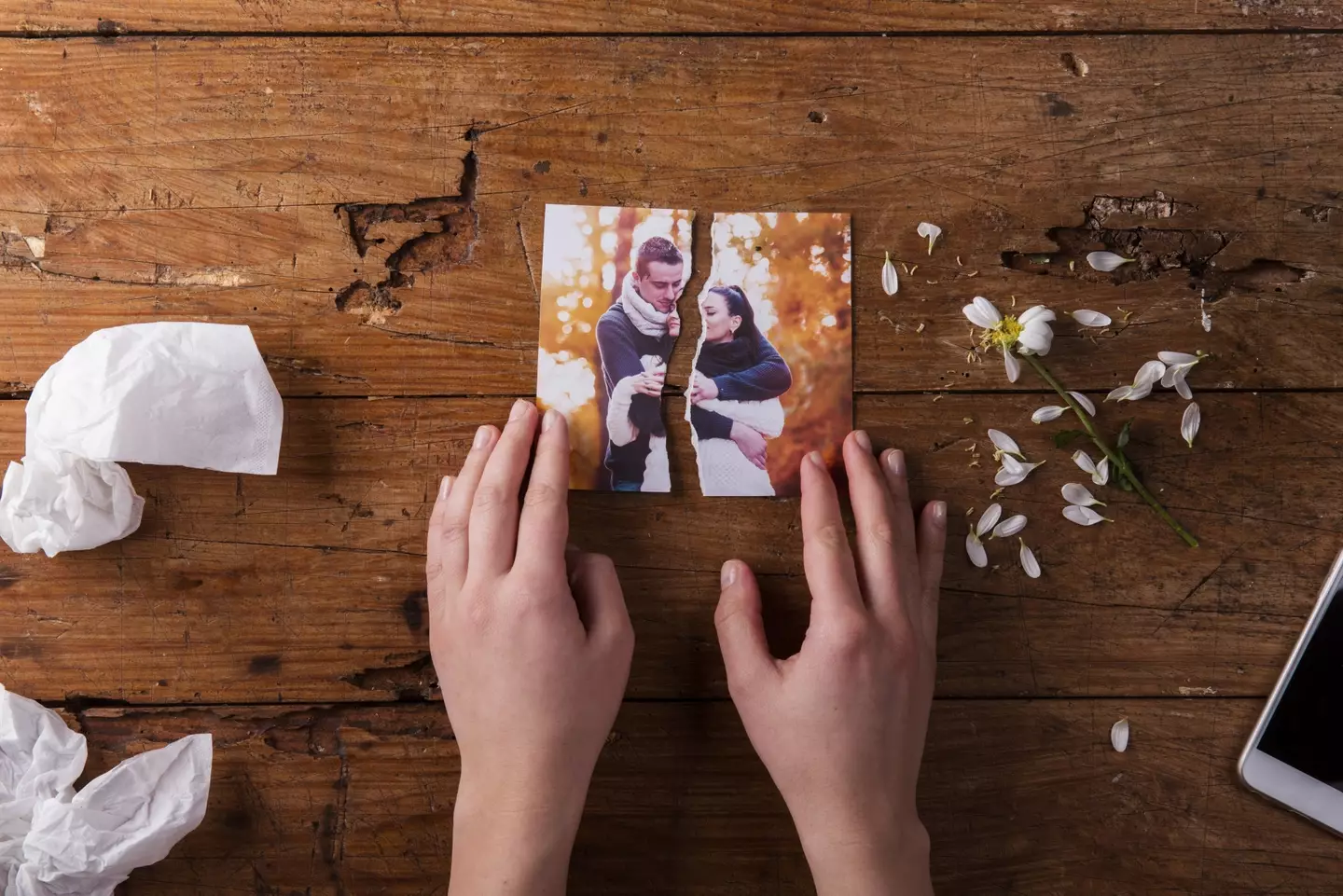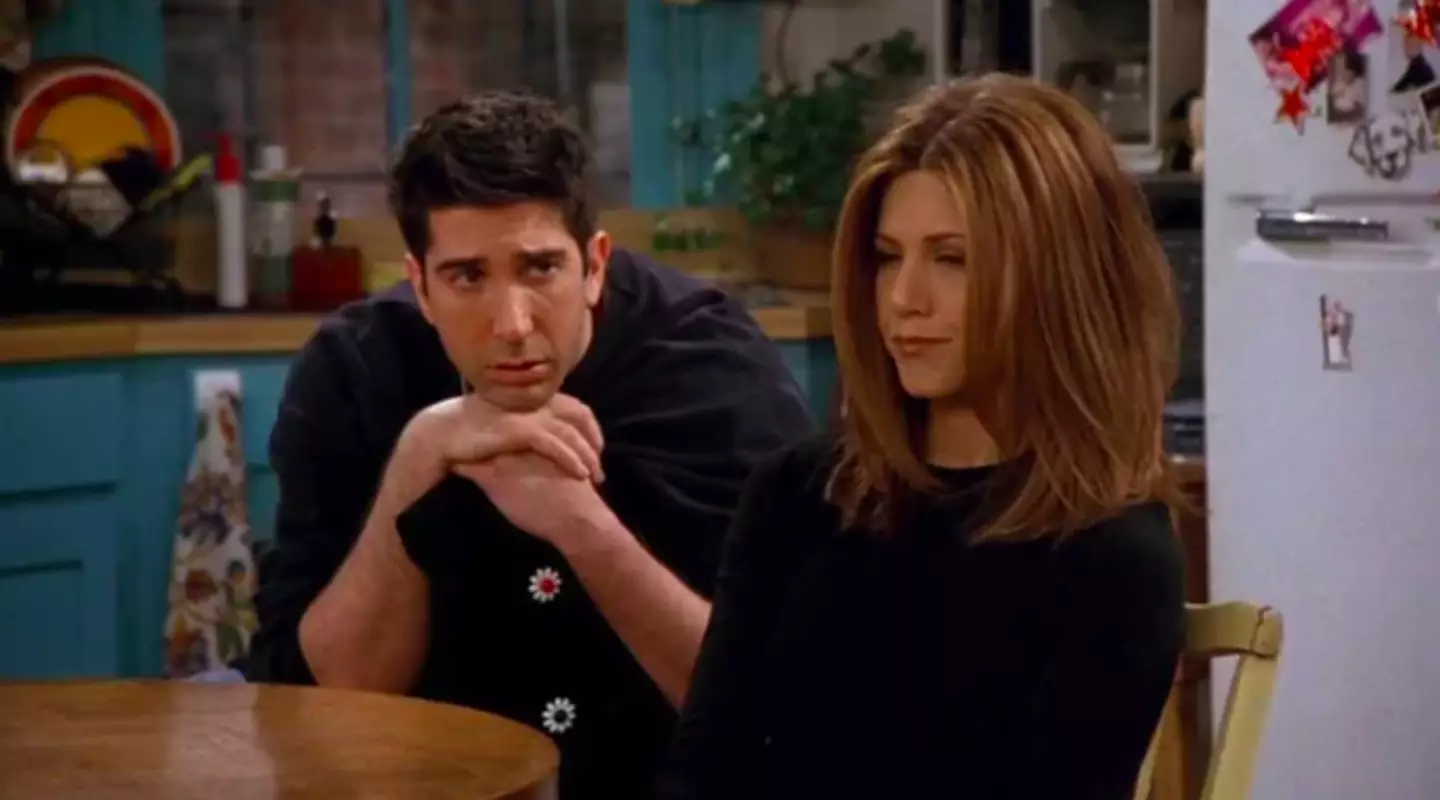
When Love Island's resident hunk Brad McClelland was dramatically dumped from the villa last week, it's fair to say viewers kept a very close eye on how almost-girlfriend Lucinda Strafford reacted.
Initially, people were surprised at Lucinda’s somewhat melodramatic response (including how she specifically mentioned how she and Brad had eaten Special K with raspberries that very day).
But before long, fans couldn't help wondering how long it would take for the Islander to “move on”.

One person announced: “Lucinda will move on within two episodes watch #LoveIsland”.
Advert
Another Twitter user wrote: “I feel like Lucinda is still hung on Brad and is under too much pressure to move on.. seems like the type of girl to take her time with stuff #loveisland”.
While the show's format has undoubtedly created its own sped-up timeline, where ‘taking it slow’ is a likely way to get dumped from the island, it nevertheless thrusts some important questions into the limelight.
How should we mourn a relationship? How long should the grieving last? When do we know that it’s time to move on and look for another relationship?



Psychotherapist and relationships expert Neil Wilkie, who founded online couples therapy platform The Relationship Paradigm, told Tyla: “It takes as long as you would like it to; anything from a few minutes to forever.
Advert
“The time taken depends on the answers to the following questions: Was it your choice or their choice? If it was your choice, are you feeling guilty or that you made a mistake? If it is their choice, do you feel they were wrong and are you feeling a victim?”
Neil also makes an interesting comparison between the loss of a relationship to our traditional view of grieving of the Kubler-Ross Grief Cycle which has five stages – denial, anger, bargaining, depression and acceptance.
Neil says: “This was originally created for the impact of death of a loved one but applies equally to loss of a relationship or significant trauma. People may go through each stage in turn, or they may follow a different pattern or get stuck in the middle.”

If someone has gone through these stages though, how can they tell that they're ready to move on?
Advert
Neil explains that you should trust your gut on this one: “People are ready to move on when the pain of staying where you are exceeds the pain of changing and moving on.
“Some people get secondary gain from being the ‘victim’ of a breakup and convince themselves that the future can never be better. Others focus on the future that they want, learn from their mistakes from the past and accept that like it or not, that relationship has ended.”
Neil also makes the point that during a break-up, there are things that can delay us in moving on: “They tend to mourn the good things that they lost and the future they had dreamed of that never materialised. The relationship and the person are intertwined and difficult to segregate.
“It is easy to romanticise the relationship that you had and ignore the negatives. It is also easy to blame your ex and avoid responsibility for what actually happened.”

Tyla also spoke to people who had been through break-ups themselves, discussing their personal experiences in mourning a relationship.
Advert
Greg*, 22, had been with his partner for four years before deciding the relationship needed to come to an end. Greg told Tyla that he had a complex situation as the one doing the dumping: “I definitely think being the 'dumper' helped with the mourning process.
“I was able to get a head start on the process and begin to consider how my life would operate outside of the relationship before it had even ended.
“For me though, being the 'dumper' also brought with it a lot of guilt which I don't think I would have felt had the tables been turned. I had genuinely loved my partner and didn't want to hurt her, and knowingly doing so was really hard to deal with.”
Greg also explained that the dramatic change in immediate support network impacted the mourning period for him: “I also felt really lonely coming out of such a long relationship. It was a difficult change to go from speaking to someone every single day to having no contact whatsoever.
Advert
“Luckily, I had a good support network around me and was able to invest a lot of my emotional energy into my friendships as a result, which definitely helped my grieving process.
“It took me about six months to feel open to another relationship, I definitely needed the time to figure out who I was outside of the relationship and process my emotions”.

Alice*, 24, had a different experience as being the ‘dumpee’ in the break-up. She had officially been with her partner for four months but had been dating for three months prior to that.
Alice told Tyla that she had mainly felt sadness and anger after the break-up: “I was furious at him because I thought he reciprocated my feelings when in reality he didn't, and I was sad because I was very much in love with him and I desperately wanted to be with him”.
Alice also explained how she believes that she entered another relationship too soon afterwards: “I moved on to a different relationship quite soon after the breakup, only a month or so afterwards, but in hindsight I shouldn't have done that because I was definitely not ready to be with someone else.
“I would say I probably would've been ready after two or three years given my feelings for my ex”.

Greg and Alice have the benefit of having a fair bit of distance from their break-ups. Whereas Julia, 21, split from her partner just under two months ago.
Julia explains that the first few days were filled with heartache before other commitments got in the way of processing the break-up: “I guess my mourning process stopped there […] I knew there was a void in my life, I filled it with work and exercise.
“A week after the breakup, I couldn’t feel anything because I had to suppress my emotions to function. I was emotionally numb, I couldn’t cry.”
Does starting a new relationship now feel accessible to her?
“I just moved to London and have been making new friends. The male attention helps with re-building my confidence. But when the opportunity did present itself, everything felt wrong.”
“I think I will be ready when I can accept that he is an ex now (I still refuse to use the term ex). I think I will be ready when I can see a new person for who he is, rather than a rebound or someone who has the same eye colour and hair colour. I think I will only be ready when I am comfortable with who I am.”
Grief over lost relationships differs hugely from person to person but what matters is taking it one day at a time and not punishing yourself if things take longer than expected.
* Some names in this article have been changed for anonymity
Featured Image Credit: ITV2Topics: Sex and Relationships, Love Island, Life